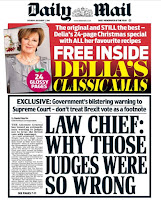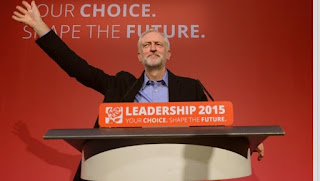Freethepress campaign urges readers: "Say NO to section 40 and Leveson Part 2. Press freedom, the lifeblood of democracy, is under attack. But you can do something about it. The British government has opened up a public consultation on the next stage of the Leveson Inquiry. It is asking us two questions. Should the government implement Section 40 of the Crime and Courts Act 2013? And should the government go ahead with Part 2 of the Leveson Inquiry?We say an emphatic NO to both of these questions. And we think you should make your voice heard too."
David Aaronovitch in The Times [£]: "In addition to being a hack I’ve chaired the freedom of expression organisation Index on Censorship for nearly four years. In that time I’ve seen the variety of ways and the ingenuity of arguments that people use when looking to constrain or limit free speech. It never stops and it’s by no means mainly autocrats who seek to do it. There’s always a good and urgent reason, but to me it’s evident that freedom of speech and expression is the one freedom that underpins all the others."
Max Mosley in a letter to The Times [£]: "As David Aaronovitch points out, the rich often force newspapers to suppress stories that should be published. A newspaper can be hundreds of thousands of pounds out of pocket even if it wins a major law suit. That is precisely the problem that Leveson has solved. When section 40 of the Crime and Courts Act comes into force, a newspaper can respond to threatened litigation by offering inexpensive arbitration. If this is refused, the court can order the aggressor to pay the costs of both sides. This new law strongly reinforces press freedom and should be commenced without delay."
Gavin Millar, QC, in a letter to The Times [£]: "Huge costs in court cases against newspapers are problematic, but section 40 (2) of the Crime and Courts Act would not solve the problem, as Max Mosley suggests (letter, Dec 16). True, it dangles a “carrot”. Newspapers may not have to pay costs even when they lose the case, but they have to join a state-approved regulator to bite at the carrot. This is currently Impress, funded by Mr Mosley. Valuing their independence, newspapers understandably refuse to do this. In fact, section 40 (3) would create, not solve, a problem. Costs could be awarded against our “refusenik” newspapers even when they win. This is the “stick” in section 40. Drastic state penalties of this sort are incompatible with free speech. They inhibit investigative journalism and allegations of misconduct against powerful people who might sue.
Section 40 is dangerous humbug. Like Old Marley it must be pronounced “dead as a doornail” after this Christmas consultation."
Rachael Jolley, editor, Index on Censorship magazine, in a letter to The Times [£]: "
Index on Censorship has published stories by censored writers for more than four decades. Now we ourselves face the prospect of censorship via legal action in the UK. As it stands, legislation on the statute means that we — as an independent publisher that declines to join the press regulator Impress — face the prospect of crippling legal costs, even if we won a case that had been brought against us. Our publication, to which last month the British Society of Magazine Editors gave an “editor of the year” award for its work, could be forced out of business. Any regulation that could potentially bankrupt the media and make investigative journalism too costly to publish should be fiercely resisted."
Lord Lester of Herne Hill, QC, in a letter to The Times [£]: "IPSO is supported by most of the press and uses its formidable new powers effectively. When the public consultation ends next month, the culture secretary should not invoke section 40 of the Crime and Courts Act. If Hacked Off brings a legal challenge, I predict that the courts will rule that section 40 is arbitrary, unfair and incompatible with a free press."
Brendan O'Neill, editor of Spiked: "The recommendations of the Leveson Inquiry include the Press Recognition Panel’s use of extreme financial pressure to make all press outlets sign up to a new press regulator, and the suggestion that even third parties — that is, people not directly affected by an offensive press article — could be allowed to complain about it. The idea, now too widely accepted, is that the press must be tamed and the easily offended empowered. The opposite is the case. We should ignore, or challenge, professional offence-takers, and give the press greater freedom and independence and power over itself and its output."
The Sun in a leader: "Section 40 of the Crime and Courts Act would be the instant death of investigative journalism. Newspapers could no longer afford to expose scandals in the public interest and provably true. The only safety would be under a new industry regulator,
Impress — a dubious outfit bankrolled by Max Mosley, a tycoon with a vendetta against the Press."
Jeremy Clarkson in The Sun: "Newspapers, and the people who produce them and write them and own them, are a constant thorn in my side, an unending headache, and I sometimes lay awake at night wondering what the editor of the
Daily Mail would look like without a head. So you’d expect me to be whooping for joy at the news that over the Christmas break, while you’re making merry with the party poppers and the crackers, various shadowy Government people are drawing up plans to bring the nation’s newspapers to heel. But I’m not. I’m horrified to the point of panicky breathlessness. And you should be too."
Nottingham Post editor Mike Sassi, quoted by Press Gazette: "Like all local newspapers, The
Nottingham Post receives dozens of complaints every year. The vast majority are dealt with amicably, often by us explaining to complainants how and why something has been reported. A small number are resolved with a swift clarification and, if necessary, an apology. However, if Section 40 were to become law, complainants would have a huge financial incentive to pursue us, knowing that even if they lose we have to pay their costs. The number of complaints would inevitably increase."
David Higgerson on his blog: "IMPRESS, in my opinion, has demeaned and belittled journalism in its quest to force others to make life so difficult for the Press that they have no choice but to sign up. In doing so, it has alienated the vast majority of journalist for whom facts are everything, and getting something wrong is something they try to avoid at all costs."
MediaGuido on press regulator Impress: "MediaGuido has found that four senior Impress employees have endorsed loopy comparisons between the
Daily Mail and the Nazis. Impress CEO Jonathan Heawood has shared multiple social media posts calling the
Mail “fascists”, “a neo-fascist rag”, and a claim that it is “increasingly adopting fascist style politics”. Another post shared by Heawood compares the
Mail to a newspaper from Nazi Germany... How can a press regulator reasonably regulate an industry if it wants to ban newspapers? How can they come to fair and balanced judgments if its CEO believes they are “neo-fascists”? Impress is the press regulator that hates the press, it is a farce that the government is giving these people the time of day…"
Stephen Glover in the Daily Mail: "It seems to me utterly incredible that a group of individuals who don’t bother to disguise their hatred for some newspapers should be the leading lights of a State-approved body which is supposed to regulate the free Press — and that the same organisation should be funded by a man like Mosley. Are we dreaming? Can this really be happening? If politicians really do want State control of the Press, you’d think they might come up with a few respectable members of the great‑and-the-good rather than this immature and undistinguished shower who garrulously tweet their illiberal prejudices."
[£]=paywall


























































